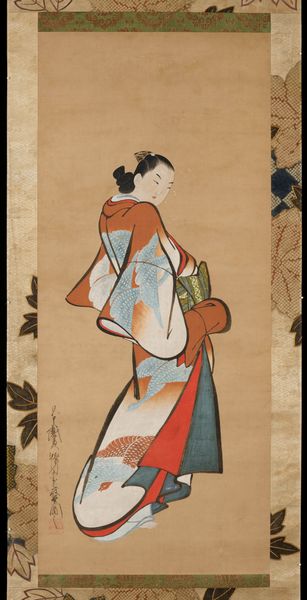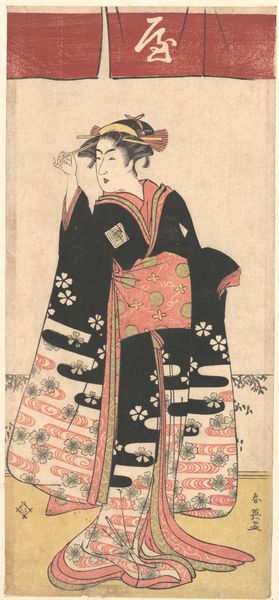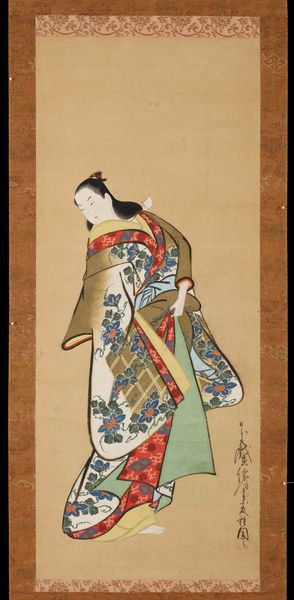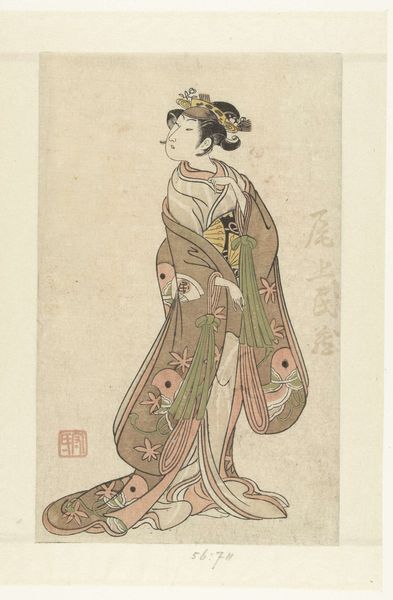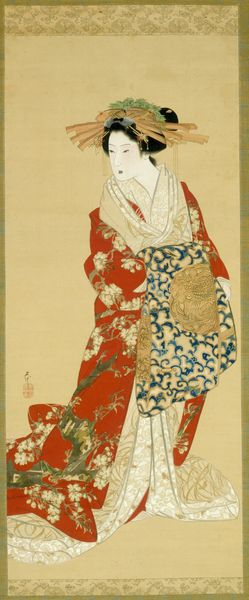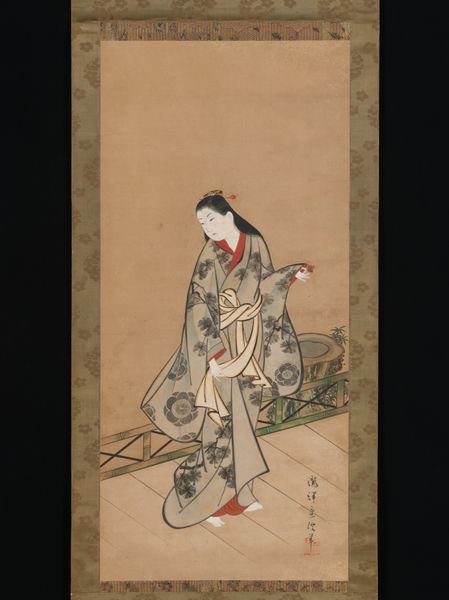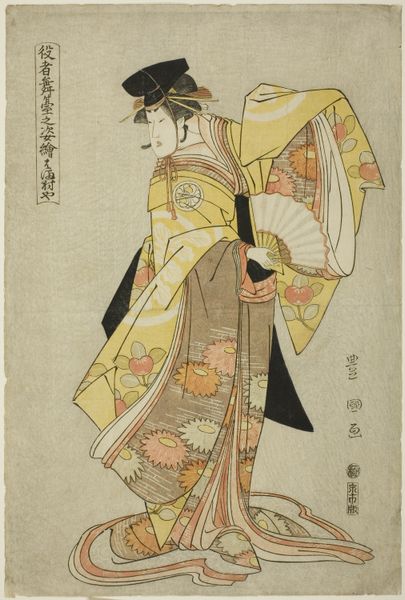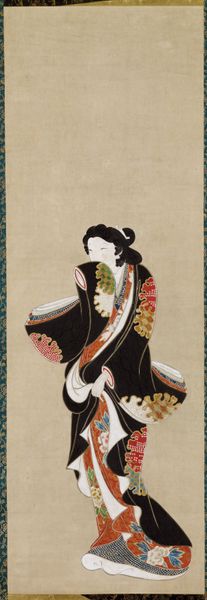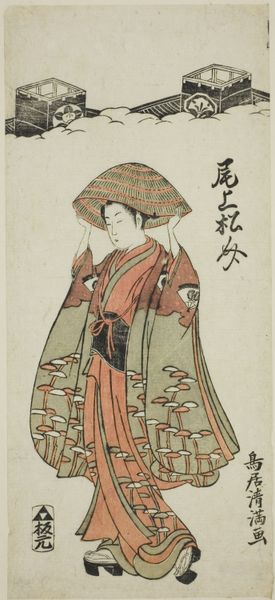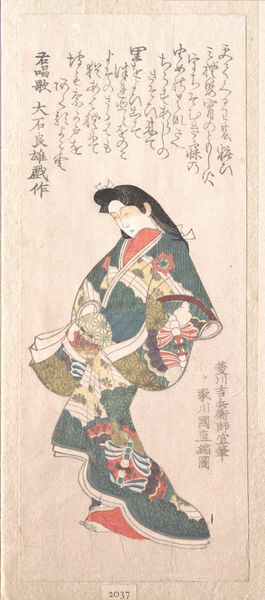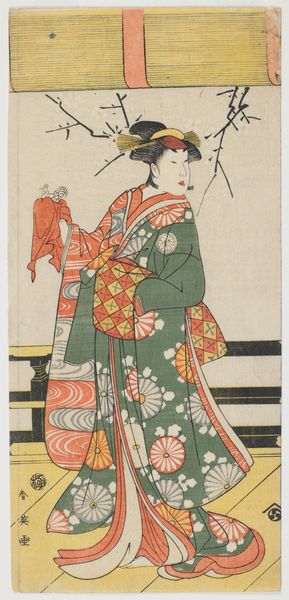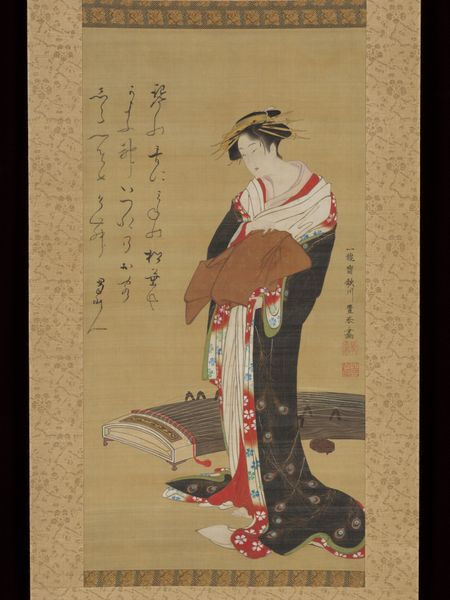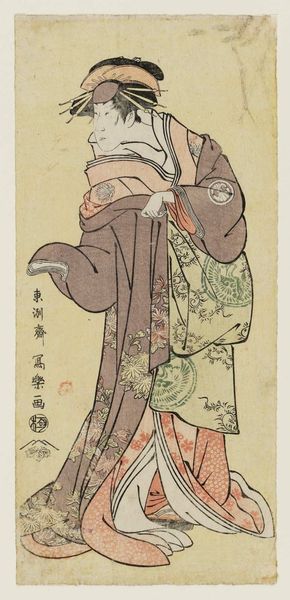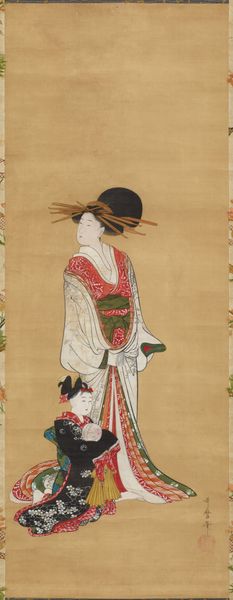
painting, watercolor
#
portrait
#
painting
#
asian-art
#
landscape
#
ukiyo-e
#
watercolor
#
watercolor
Dimensions: Image: 32 x 11 15/16 in. (81.3 x 30.3 cm) Overall: 63 7/8 x 18 3/4in. (162.2 x 47.6 cm)
Copyright: Public Domain
Kubo Shunman created this painting of a beauty by the shore with ink and color on silk in Japan during the late 18th or early 19th century. It’s a fine example of the Ukiyo-e style, which translates as “pictures of the floating world.” This art movement emerged during the Edo period when Japan was experiencing economic growth and relative peace. The floating world captured the fleeting pleasures of urban life. Ukiyo-e paintings and prints often depicted beautiful women, Kabuki actors, and scenes from popular stories. The patronage of wealthy merchants and a growing middle class fuelled the demand for these artworks. Shunman’s beauty, with her elegant kimono and serene expression, embodies the aesthetic ideals of her time. Yet, the Ukiyo-e tradition also challenged social norms by celebrating the ephemeral and embracing the subversive aspects of urban culture. To fully appreciate this painting, one might explore the history of the Edo period, delve into the conventions of Japanese portraiture, and examine the complex relationship between art, commerce, and social identity in 18th-century Japan.
Comments
No comments
Be the first to comment and join the conversation on the ultimate creative platform.
